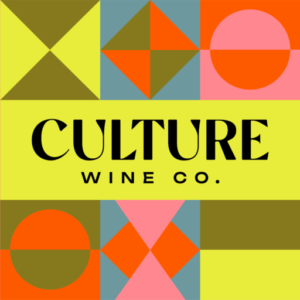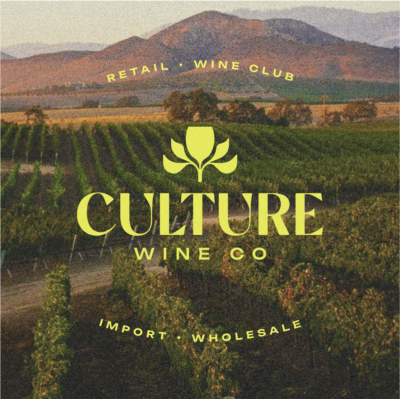Scions of Sinai
Young Winemaker of the Year - Tim Atkin South Africa Report 2019
Scions of Sinai
Seventh Generation Wine Farmer and Winemaker, Bernhard Bredell, started roaming the vineyards of Sinai Hill before he was tall enough to see over its bush vines. Vines were first planted on this plot of land 160 years ago by his ancestors when they arrived in South Africa. Bernhard eats, sleeps, and breathes this land, and after just a little bit of time exploring with him, it’s easy to feel as connected to it as he does.
He’s an open book, sharing fascinating stories about his family history, the sacred nature of the land, and his regenerative and dry farming methods. He even recounted the hilarious story of getting in trouble as a young kid (elementary school age) for going to school with stained purple hands from daily fermentation punch-downs. Wine has, and always will be, an essential part of his being.
Bernhard has made wine in Priorat (Northern Spain), Fleurie (Beaujolais), and even in Crozes-Hermitage (Rhône Valley), at the famed Domaine Alain Graillot estate. But, the land that makes Bernhard tick the most is that of his family heritage in Stellenbosch. Truly, Bernhard’s work has great potential to positively impact the worldwide view of South African wine. After I discovered it, my eyes were opened to all the incredible things happening in South African wine today.
In our first meeting, we drove from his cellar to the old bush vines that are so sacred to Bernhard. These stunning vineyards, now certified as Heritage Vines by the Old Vine Project, are nestled between the rugged Helderberg Mountain Range and the icy waters of False Bay. Fun fact: his family’s Pinotage vineyard is the closest to the ocean in South Africa.
On the way to the vineyards, Bernhard shared a rather vulnerable and sad tale of his family’s wine history. While pointing out the nearly 200 hectares (about 494 acres) of crescent-shaped vineyards along Sinai Hill, I learned that nearly three-quarters of them were sold by his father after the passing of his grandfather. This occurred when the KWV Cellars suddenly stopped buying Port wine for their portfolio. The Bredell family had, for many decades, been supplying them with Port as negociants. The sudden termination of the Port negociant system led to a downward spiral for the farm, as 90% of it had been producing Port, and done so at KWV’s recommendation for many decades prior.
What remains in the family is owned by his cousin, who makes table wines from younger vines on the farm. The older bush vines are too costly for his wines, so he sells the fruit to independent producers who see their worth. Still, the possibility of losing this land is a little too close for comfort for Bernhard. And this is perhaps the catalyst for his greatest motivation: to keep these remaining vineyards in the family. He now farms a portion of selected old bush vines with his cousin and makes the Scions of Sinai label from this. They have demarcated sections on Sinai Hill where each vintage Bernhard has exclusive access to the fruit. Acting as an unofficial vineyard broker and communicator to his cousin, Bernhard helps take care of other sections where top producers in South Africa have started to buy fruit.
Bernhard works tirelessly to ensure these historic bush vines are never ripped up in favor of higher-yielding trellises. Bush vines need less water, respond better to the decomposed granite soils of the region, and ultimately make the best wine possible in the Helderberg. As a result, he maintains an approach that blends mindful natural farming practices, regenerative agriculture, and a “less-is-more” philosophy. No herbicides are used, and instead of tilling, he employs gentle methods like disc ploughing cover crops into the soil to prevent weeds and maintain moisture for the vines. These are practices that emphasize balance with nature, working with the land rather than forcing its output.
Once we made it to the vineyard, and after learning so much about Bernhard and his story, his passion made all the sense in the world. As we walked through each parcel of vines – Chenin Blanc, Syrah, Pinotage – it became abundantly clear just how special this pristine land is. From the juxtaposition of steep, jagged mountain peaks to the icy cold ocean, each vine in this site tells a story. This special place will make any person marvel – as will its wines.
A New Ward (Helderberg) Developed:
Over the past ten years, Bernhard has worked with a small group of equally passionate winemakers from the Helderberg to pitch the South African government to create a new sub-region within Stellenbosch. They have succesfully lobbied to demarcate their own ward, Helderberg, which honors the unique maritime influence and soil structure that the rest of Stellenbosch simply does not have.
Helderberg is heavily influenced by cooling effects of the ocean. Its decomposed granite soils are uniquely high in silica fragments and have a granular sandy texture. They contain less clay than most Stellenbosch soils, are well-drained, and nutrient-poor, resulting in low yield. Due to this, Helderberg wines are less opulent and fleshy than the rest of Stellenbosch. They have unique characteristics of purity, finesse, tight, grainy tannins, and a vibrant energy.
Accolades:
Critic and Master of Wine, Tim Atkin named Bernhard, South Africa’s Young Winemaker of the Year after only his second vintage making Scions of Sinai.
Critic and Master of Wine, Neal Martin, tasted Scions of Sinai wines and lauded the 2021 Swanesang Syrah 97 pts. This was one of only four wines receiving such a high score that vintage.
Critic and Master of Wine, Greg Sherwood, coined Scions of Sinai as Putting the Helderberg on the Global Fine Wine Map.
Culture Wine Co. is proud to be the US importer for Scions of Sinai. Please contact Culture Wine Co. for US wholesale inquiries related to Scions of Sinai.
Region: Stellenbosch
Grapes Produced: Chenin Blanc, Grenache Blanc, Roussanne, Syrah, Cinsault, Pinotage
Farming Method: Regenerative, Hand-farmed, Mindful of Nature
Yeast Type: Native
Wine Style: Natural and Minimal Intervention



